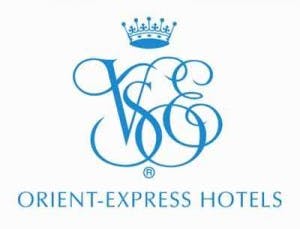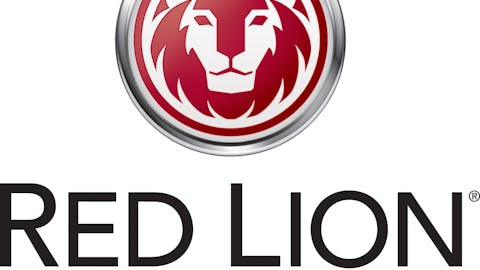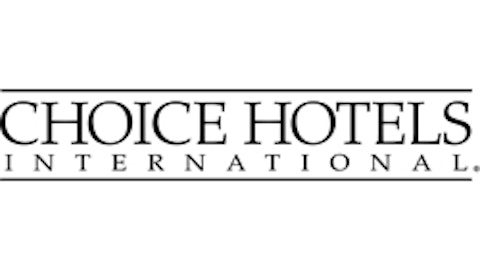Recently, Barron’s featured luxury hotel operator Orient-Express Hotels Ltd. (NYSE:OEH), thinking that the company might experienced a decent turnaround under the leadership of its new CEO. Since the beginning of May, Orient-Express’ share price has gone up significantly, from $9.50 per share to nearly $11.70 per share. Should we invest in Orient-Express Hotels Ltd. (NYSE:OEH) now? Let’s find out.

Orient-Express Hotels Ltd. (NYSE:OEH) is a leading luxury hotel operator, owning 33 deluxe hotels, one stand-alone restaurant, six tourist trains, and three rivers cruise operations. The majority of its revenue, $470 million, or 86% of its total 2012 revenue, was generated from the hotels and restaurants segment while tourist trains and cruises contributed only $74.7 million in revenue. In the hotels and restaurants segment, Orient-Express Hotels Ltd. (NYSE:OEH) derived most of its revenue, $202 million, from its owned hotels.
Since 2008, Orient-Express Hotels Ltd. (NYSE:OEH) has been generating losses, ranging from $7 million to $69 million. In 2012, the loss came in at $7 million. The losses were due to the fluctuating revenue, increasing SG&A and interest expense. However, Orient-Express Hotels Ltd. (NYSE:OEH) has produced positive operating cash flow in four out of the past five years. In 2012, operating cash flow was $46 million while free cash flow was negative at $52 million. Orient-Express has a decent balance sheet. As of March 2013, it had $877.5 million in equity, $87.6 million in cash, and around $520 million in long-term debt.
Turnaround under new leadership
Recently, John Scott III has been appointed to be the President and CEO of Orient-Express. Scott has around 25 years of experience in operating luxury hotels, including his past experience being the President and CEO of Rosewood Hotels & Resorts. According to Orient-Express’ chairman, Robert Lovejoy, Scott had doubled the number of hotels under management and notably increased the company’s EBITDA. After that Rosewood Hotels & Resorts was sold to Hong Kong-based New World Hospitality for nearly $230 million.
In the recent presentation, the company stated that it will save around $3 million-$5 million in overheads in the next 12-24 months, Moreover, it would sell two or three of its non-core assets to bring in around $50-$70 million of proceeds in the next two years. In the coming three years, the annual project capital expenditure would stay around $20-$30 million (in addition to normal furniture, fixtures, and equipment capex spending), which would be mainly financed with the company’s operating cash flow. In the next few years, the company might generate as much as $140 million.
Orient-Express is trading at nearly $12 per share with a total market cap of more than $1.2 billion. The market values Orient-Express quite expensively at 19.3 times EV/EBITDA. If EBITDA rose to $140 million, its EV/EBITDA dropped to around 12.4. Its bigger peers are Marriott International Inc (NYSE:MAR) and InterContinental Hotels Group PLC (ADR) (NYSE:IHG). Orient-Express does not look expensive if Scott could successfully implement his plan.
Is it better than its larger peers?
Marriott International Inc (NYSE:MAR) recently reported impressive first-quarter earnings results. Its revenue witnessed a 23% year-over-year growth to $3.14 billion. Net income came in at $136 million, 31% higher than the net income of $104 million in the first quarter last year. However, EPS had a much higher growth of 43% to $0.43 per share. The higher growth in EPS was due to a significant reduction in the number of diluted shares, from 344.6 million shares to only 320 million shares.
In the past ten years, Marriott has consistently increased its dividend payment, from $0.14 per share in 2003 to $0.49 per share in 2012. Marriott recently raised its quarterly dividend by 30% to $0.17 per share. Thus, the annual dividend payment would be $0.68 per share. Marriott International is trading at $43.60 per share with a total market cap of $13.40 billion. The market values Marriott International at 14.5 times EV/EBITDA. The dividend yield is 1.20%.
InterContinental Hotels Group PLC (ADR) (NYSE:IHG) is currently operating around seven brands, including Crowne Plaza Hotels & Resorts, InterContinental Hotels & Resorts, and Holiday Inn, with management and ownership of more than 4,400 establishments in more than 100 countries globally. In the first quarter of 2013, InterContinental witnessed RevPAR growth of 3.1%, mostly driven by the increase in its average daily rate. RevPAR growth was seen in most of the regions, including the Americas (4.1%), Asia, Middle East & Africa (5.5%), and Greater China (1.8%), while the RevPAR in Europe dropped 2.2%.
At the beginning of May, the company had finished the divestment of InterContinental London Park Lane for around $469 million, of which $95 million was used for U.K. pension liabilities. What worries me is its over-leveraged balance sheet. At the end of 2012, it had only $308 million in equity, $195 million in cash, and as much as $1.24 billion in long-term debt. At $30 per share, InterContinental is worth nearly $8 billion on the market. The market values the company at around 13.2 times EV/EBITDA.
My Foolish take
Income investors might like InterContinental the most with its highest dividend yield of 2.90%. Orient-Express seems to be a sweet opportunistic play on the company’s promising turnaround under the new leadership of John Scott. However, with double-digit EV multiple in general, the valuations of all three hotel operators seem to be quite rich already. I would prefer another dip in the share price in order to establish a long position.
The article A Turnaround Play That You Should Take a Look At originally appeared on Fool.com and is written by Anh HOANG.
Copyright © 1995 – 2013 The Motley Fool, LLC. All rights reserved. The Motley Fool has a disclosure policy.


